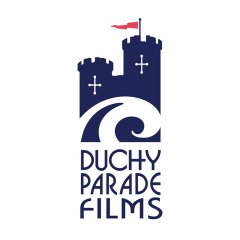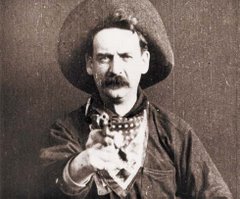If you are a young budding screenwriter or director, then this is the moment you’ve been waiting for! On
Sunday 6th May at
Goole’s Gate Theatre we are holding a
Gong Show. Anyone with an idea for a great Goole Silent Movie will get
5 minutes to present their story to an audience! At the end of the presentations everybody will get the chance to vote for their favourite idea. The
winning story will be announced live at the Gong Show and
made into a film over the coming weeks! Shooting will commence over the Spring Bank holidays.
We have seen so many great ideas over the last few weeks - any of which you can enter. Read Peters rules and tips below for details.
I look forward to seeing you at the Gong Show!
David
What are we looking for?
We are looking for ideas up to 10 minutes in duration. As a guide think of 10 minutes as equal to 10 pages of A4. You don‘t need to make a full script at this stage. We will do that as a team in the weeks leading up to filming.
We are looking for a Drama (fiction) But it must be based on or inspired by the history and heritage of Goole and its surrounding area from the early part of the last century.
How do you create a winning presentation?
In a pitch you are trying to excite people about your idea in an exciting and informative way. You can simply tell your idea, but using drawings, storyboards, and/or photographs can help other people see the film you are describing the way you imagine it.
No one likes sitting through an endless presentation so make sure your presentation is memorable and exciting! You’ll need to remember to speak loudly enough so they can hear you on the back row of the theatre! Remember you have 5 minutes. That is more than enough time but it does mean you will have to plan your presentation beforehand to make sure you don‘t go over. At the end of 5 minutes a gong will sound (it’s a gong show remember) and your time will be up!
You can work by yourself or with others in any size group to develop the pitch.
Where to begin?
The first thing you need to do is research your idea. If you don’t yet have an idea, then researching local stories will be a great start. Visit your local museums and library and check out newspaper archives. Ask older people about stories they remember or heard about people, events and places from Goole’s past. Don’t forget the Internet! Research gives you information to make your story unique and interesting. If you fail to research your story will be dull. Research can give you names for characters and places where they worked and lived. Museums will help show you what life was like 100 years ago, which will help give your story a ring of truth.
Fictional stories are always stronger when rooted in real factual people, places and events.
Look for interesting locations – where would your story be set, where would we film it?
Often when developing a story I begin by finding a place to set the story. For example, for a short film about filmmakers I started from the idea of setting the story in a cinema.
Another way is to start by developing a character. Who is it you want to tell your story about? I knew my characters were filmmakers so a natural place for them to be would be in a cinema.
Once you have an idea of whom your story is about and where you want the story to be set, ask yourself – what is the genre of the story? This will help define the films style and look.
For example, is it a comedy, horror, fantasy, romance, thriller or a mix.
The choice of genre is often associated with the emotion you wish your audience to feel.
When they’ve seen your film do you want people to feel happy, fearful, to escape the world, the joy of being in love? Or make them look for clues to solve the story they are watching?
Creating a character
We all like films with characters we identify with, with people we find interesting.
You need an event that calls them to go on a journey.
For example...
a friend they’ve not seen for a long time suddenly returns, they are physically are going on a journey, they are left something in a will, they are invited to have a new experience like their first time on a boat, making a film, diving into a dock, driving a train, camping under the stars or visiting a house they’ve never been in before. They find themselves in an unexpected situation were they have to help someone or save themselves or someone else.
Developing a story is all about asking yourself questions and using your imagination to answer those questions. Start by writing down what you know or have created about your character. Ask yourself the following questions.
What?
When?
Where?
Why?
How?
Now?
For example, what? What do they do for a living?, – do they work or not – are they too young, a student, a father looking after a family, an unemployed mother.
There are lots of questions you can ask for each key word. Writing down your answers will help you develop your character so you know what they will do in any situation they find themselves in in your story. What do they like?, what do they do?, what do they want?, what is their name?, what is the thing that scares them most?
Peter M. Kershaw
Writer/director
If you have any questions at all, add a comment and we will reply. Peter will be writing more about story on the blog so keep checking! We hope these tips help you on your storytelling quest. Good luck!
 This Sunday we screen our very first film tests! With mobile phones and videos we are used to instantly creating movies. With film, the process is longer and a little more complicated.
This Sunday we screen our very first film tests! With mobile phones and videos we are used to instantly creating movies. With film, the process is longer and a little more complicated.




















